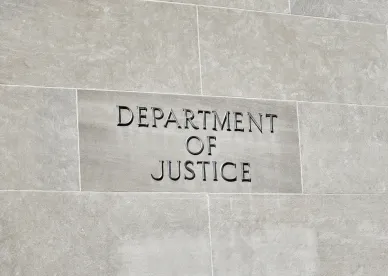On July 27, 2020, the U.S. Department of Justice (DOJ) issued a policy memorandum designed to stay the federal government’s hand in enforcing the Clean Water Act where states have initiated a civil judicial penalty proceeding under analogous state laws on the same core of operative facts.
The policy, “Civil Enforcement Discretion in Certain Clean Water Act Matters Involving Prior State Proceedings,” relies heavily on principles of federalism and efficiency – and the DOJ-wide policy against “piling-on” – to limit the reach of federal government enforcement. The memo notes that the statute explicitly precludes federal administrative enforcement where the state has taken administrative enforcement under comparable state authorities. But the statute is silent regarding any preclusive effect of state judicial action.
As a matter of long-standing practice, the federal government has approached over-filing cautiously, with many, if not most, federal civil judicial enforcement actions under the Clean Water Act proceeding with states as co-plaintiffs – or with, at least, express state blessing.
But as a result of the new policy, federal civil judicial enforcement under the Clean Water Act can proceed only with the express written approval of the Assistant Attorney General for Environmental & Natural Resources Division that may be granted only in exceptional circumstances, including where failure to act would result in an unfair windfall to defendants or the inability to protect an important federal interest not adequately protected by state action.
The guidance marks the latest in a series of federal executive branch attempts to limit the reach of the Clean Water Act, including last Spring’s “interpretative statement” from the U.S. Environmental Protection Agency (EPA) that pollutant discharges to groundwater are never subject to Clean Water Act jurisdiction. (See GT Alert, “Contradicting the Department of Justice, EPA Changes Stance on Groundwater Discharges.”) In May 2020, the U.S. Supreme Court rejected that position in County of Maui, Hawaii v. Hawaii Wildlife Fund, __ U.S. __ (2020), where it held that permits are required for discharges from a point source that travel through the “functional equivalent” of a conveyance through groundwater before reaching a jurisdictional, navigable “water of the United States.”



 />i
/>i

